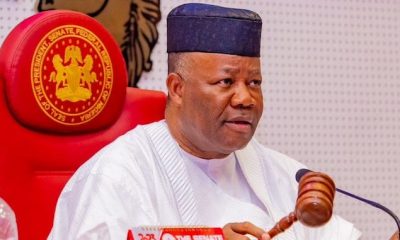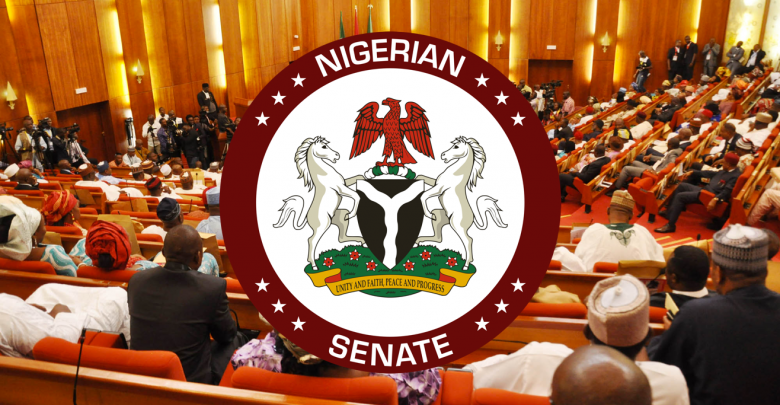There have been serious debates on how much political office holders in Nigeria earn, with many calling for the salaries to be made public.
According to a document by the Revenue Mobilization, Allocation and Fiscal Commission, the annualized salary and allowances of the President is N14, 05,820 while that of the Vice-President is N12, 126,290.
In the document seen by National Daily titled: Remuneration Package of Political, Public and Judicial Office Holders, governor’s monthly salary is made up of three items – basic salary, hardship allowance and constituency allowance.
Nati constituency allowance.
National Daily gathered that a governor is entitled to a monthly basic salary of N185, 306.75, a monthly hardship allowance of N92, 654.37 and monthly consistency allowance of N648, 580.62.
Which add up to a monthly salary of N648, 580.62 or an annual sum of N7, 782,967.50.
Other allowances of the governor, National Daily, that are not part of the monthly emoluments are 10 per cent leave allowance which amounts to N222, 370.50 per annum.
Should a governor so desire, he is entitled to 400 per cent Motor Vehicle Loan which amounts to N8, 894,820.
Also, when a governor completes his tenure, he is entitled to 300 per cent severance allowance, which amounts to N6, 671,115. This is apart from what is provided by each state as pension and gratuity.
However, the majority of the allowances that a governor is entitled to are not monetised. This means that the state makes full provision for such items – to the taste of the governor.
Such allowances include the following: Motor vehicle fueling and maintenance, special assistant, personal assistant, domestic staff, entertainment, utilities, security, and newspapers/periodicals.
Other allowances that are fully provided by the state for the governor are accommodation, furniture, duty tour allowance, estacode and medical.
For a senator, the salary and allowances add up to N20, 669,280 per annum. Those of a member ofN17, 271,347.75.
For a minister, the salary and allowances add up to N14, 705,164, while those of presidential aides add up to N14, 085,843.75.
On the face value, therefore, it appears that even the aides appointed to serve both the President and the Vice-President earn higher than these two key officials of the state.
However, the reason is that while most of the allowances of lawmakers, senators and presidential aides are monetised, the allowances that are supposed to be earned by the President and the VP are provided by the state – without any limit, just like the governor.
Apart from the salary, the regular allowances that are monetised for the President are only hardship allowance, N1, 757,350.50 per annum; and consistency allowance, N8, 786,762:50 per annum.
For the Vice-President, the hardship allowance is N1, 515,786:25 per annum, while the consistency allowance is N7, 578,931:25 per annum.
The irregular allowances for the President are the severance allowance – 300 per cent of the annual salary or N10, 544,115 – and leave allowance – 10 per cent of the annual salary or N351, 470:50.
The irregular allowances of the vice-president are the severance allowance – 300 per cent of the annual salary or N9, 094,717:50 – and leave allowance – 10 per cent of the annual salary or N303, 157:25.
Other allowances that the President and the Vice-President are supposed to enjoy which are not provided in monetary terms include motor vehicle fuelling and maintenance, special assistant, and personal assistant.
Two other officials of the state whose most allowances are not monetised but provided for by the state are the President of the Senate and the Speaker of the House of Representatives.
In the states, governors and Speakers of the State Houses of Assembly enjoy similar privileges.

 Football1 week ago
Football1 week ago
 Health & Fitness2 days ago
Health & Fitness2 days ago
 Comments and Issues1 week ago
Comments and Issues1 week ago
 Featured6 days ago
Featured6 days ago
 Education7 days ago
Education7 days ago
 Business7 days ago
Business7 days ago
 Business6 days ago
Business6 days ago
 Crime7 days ago
Crime7 days ago







